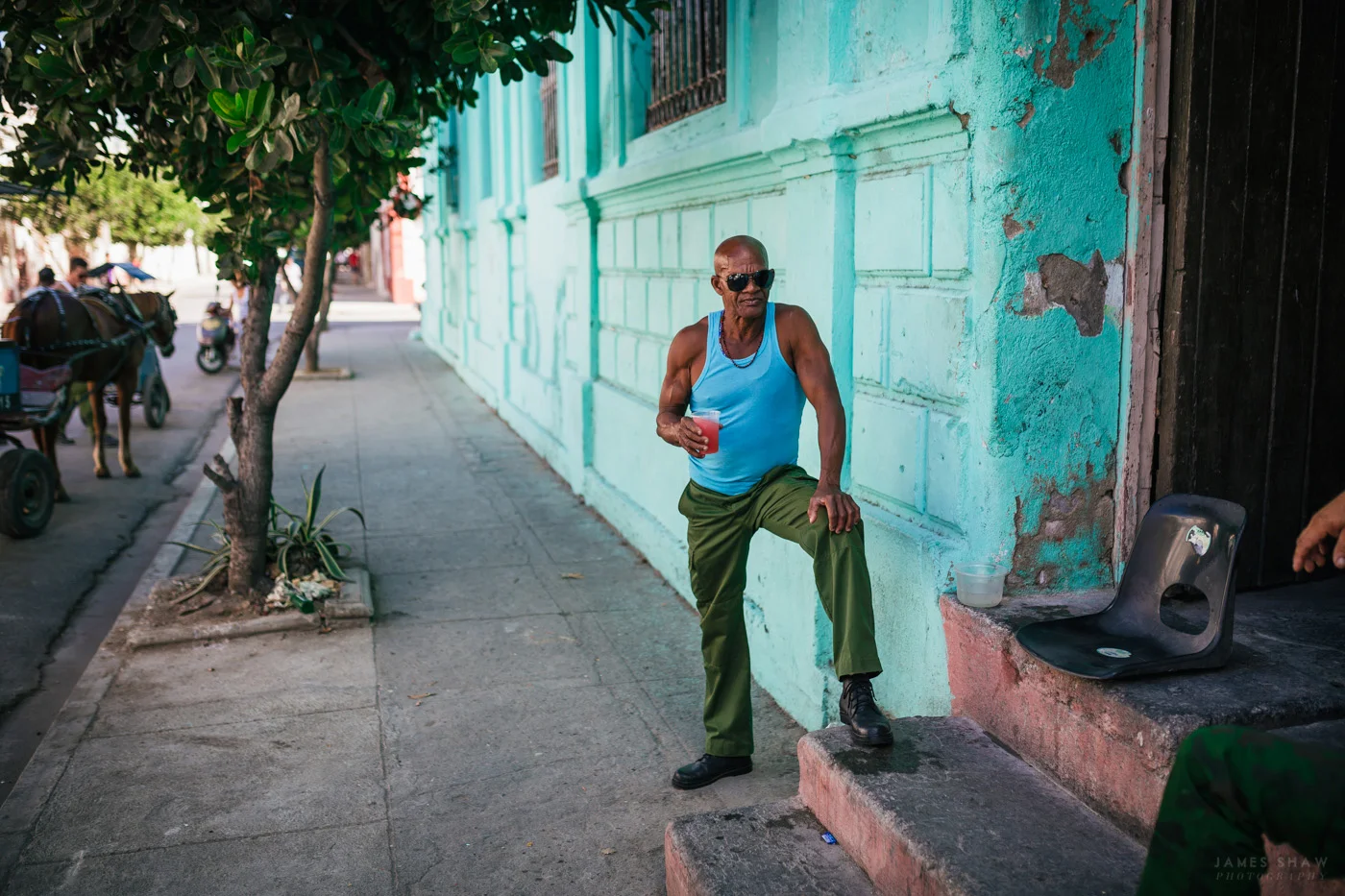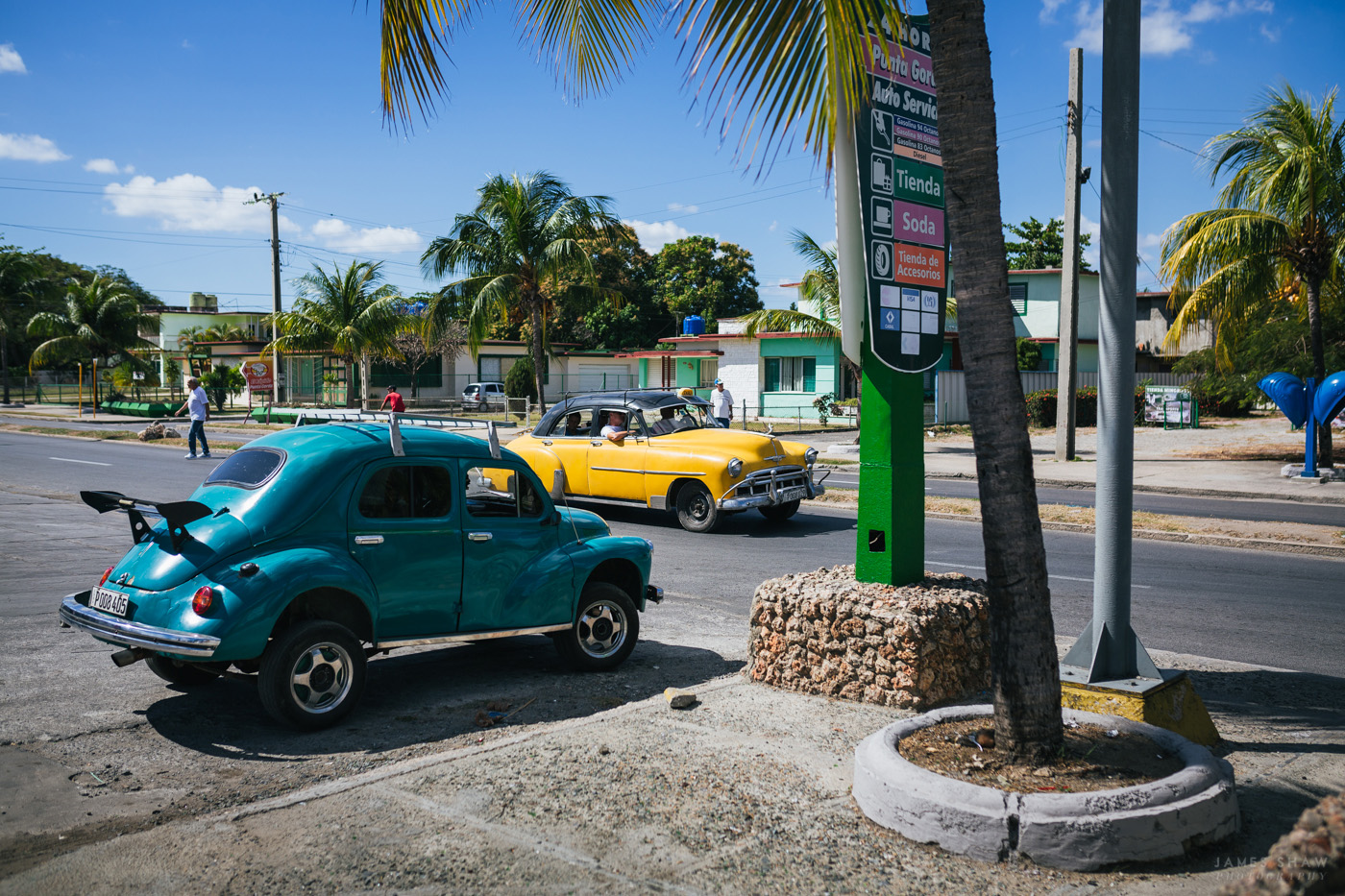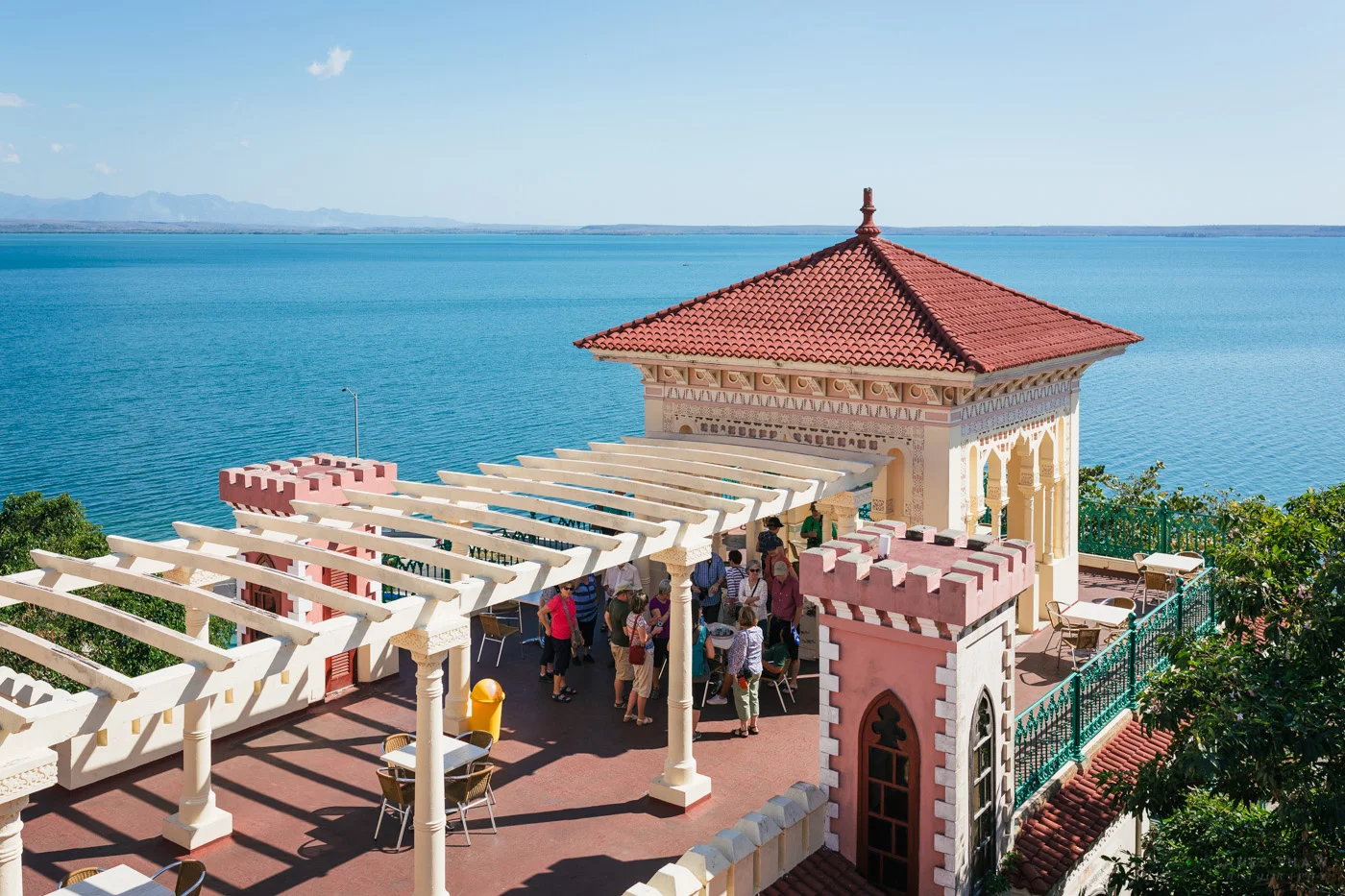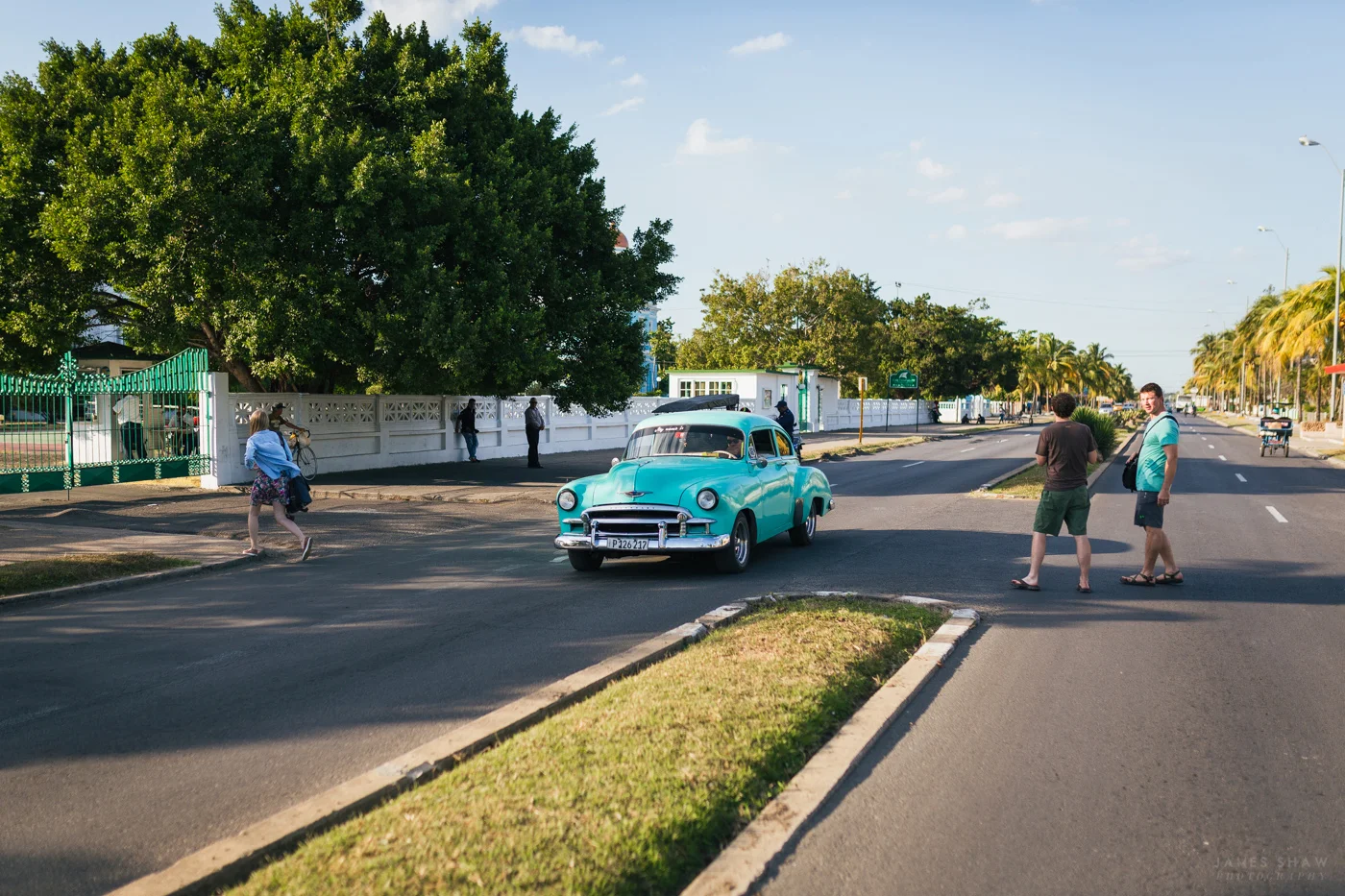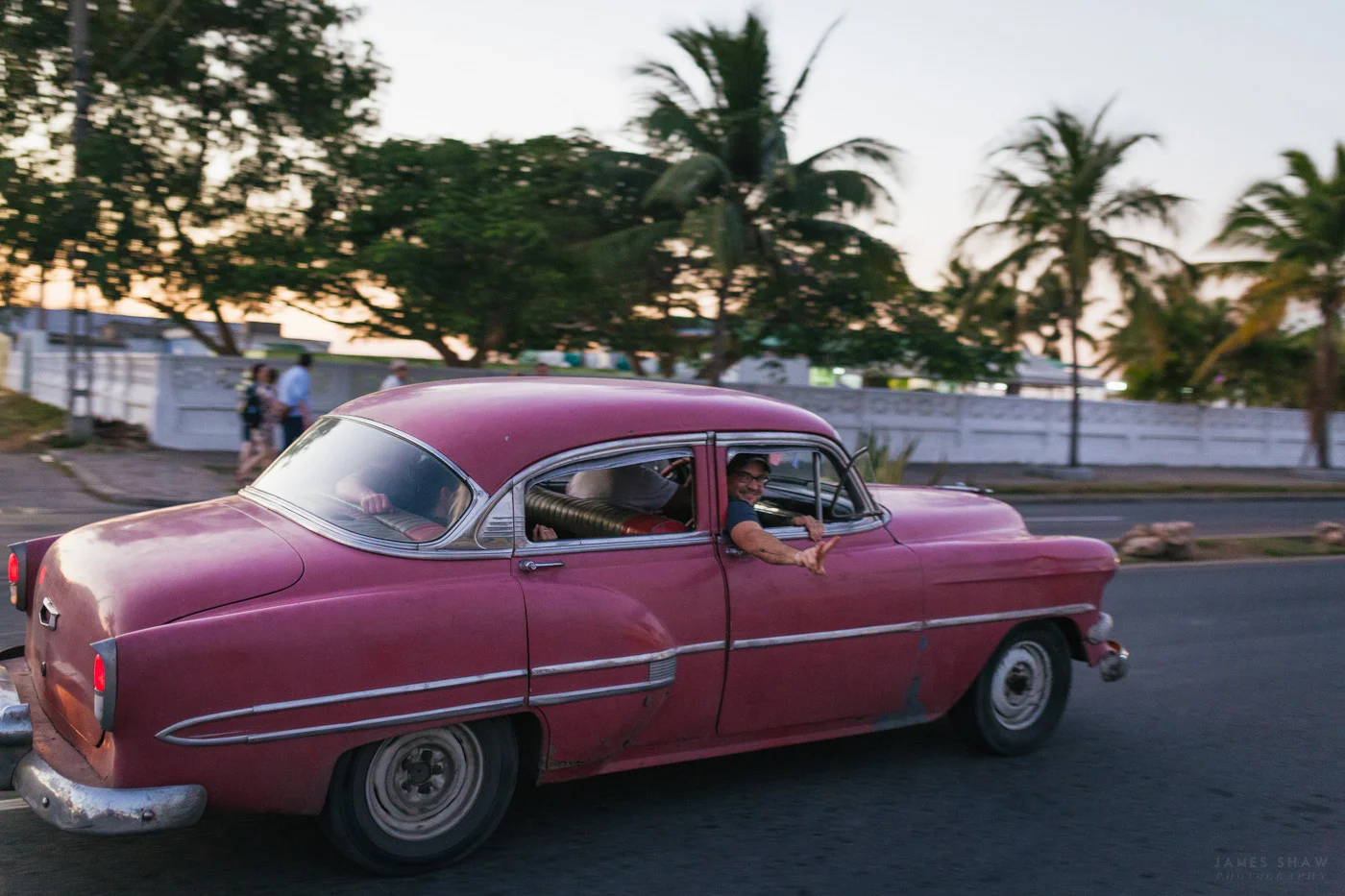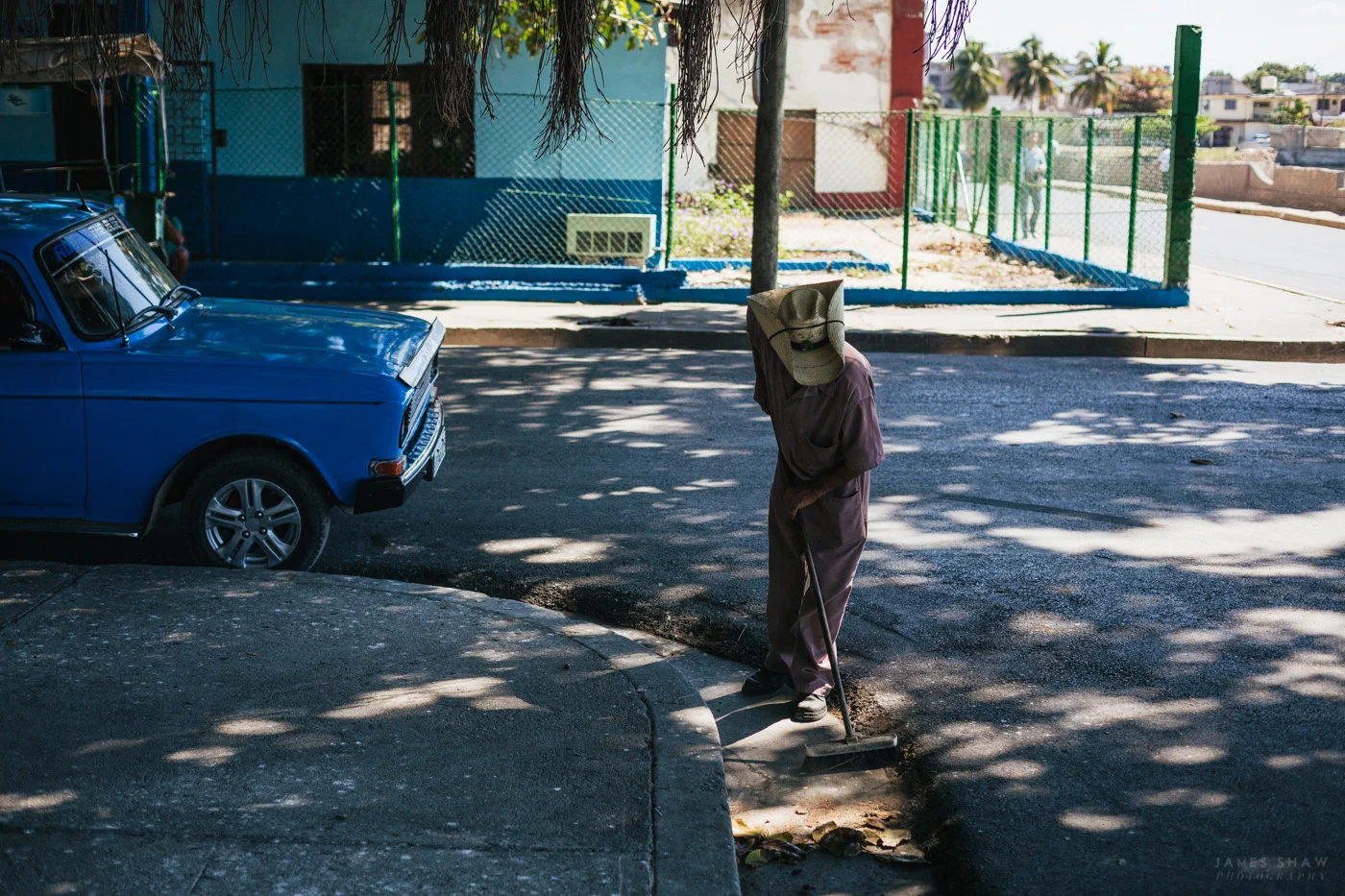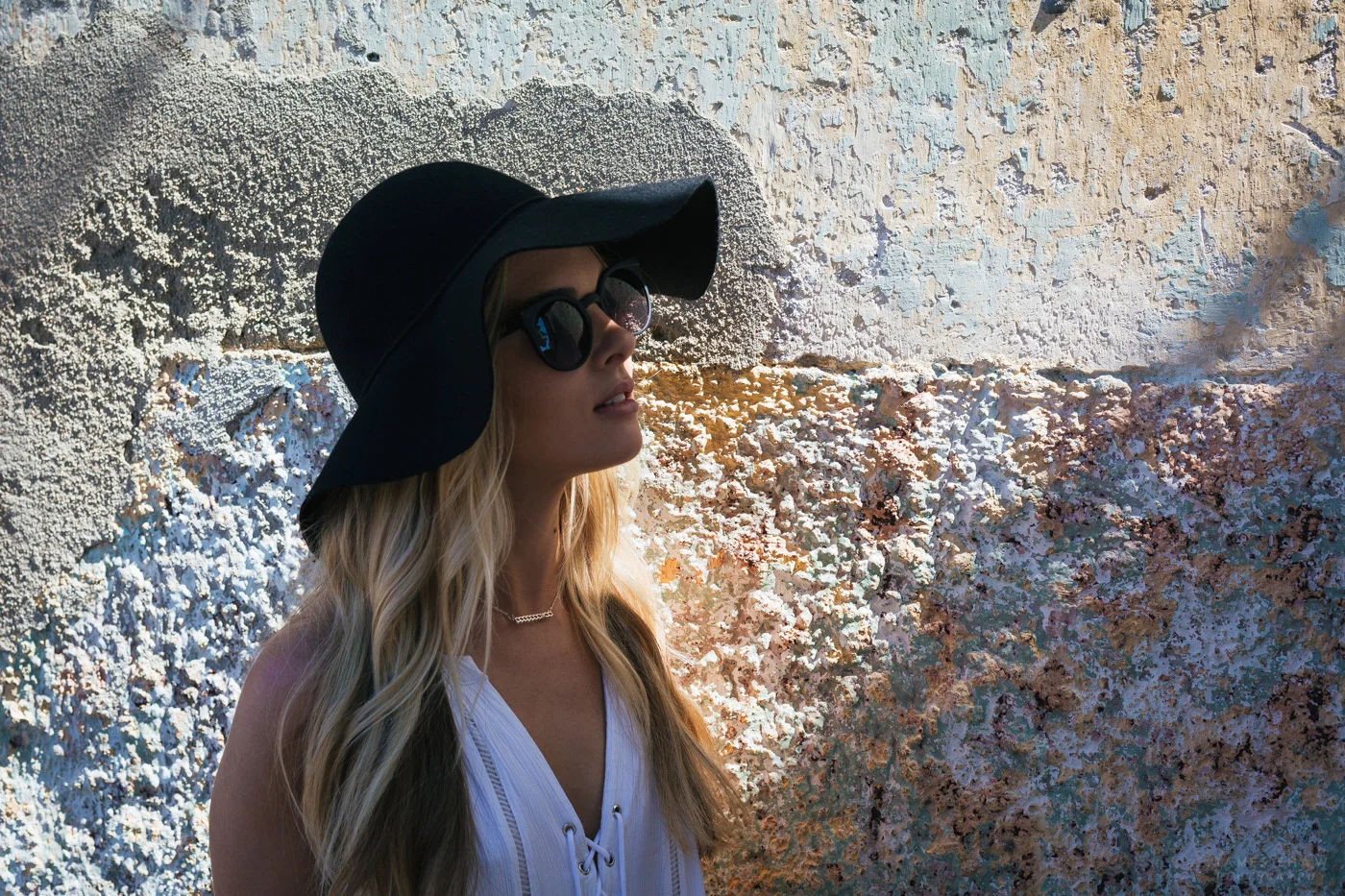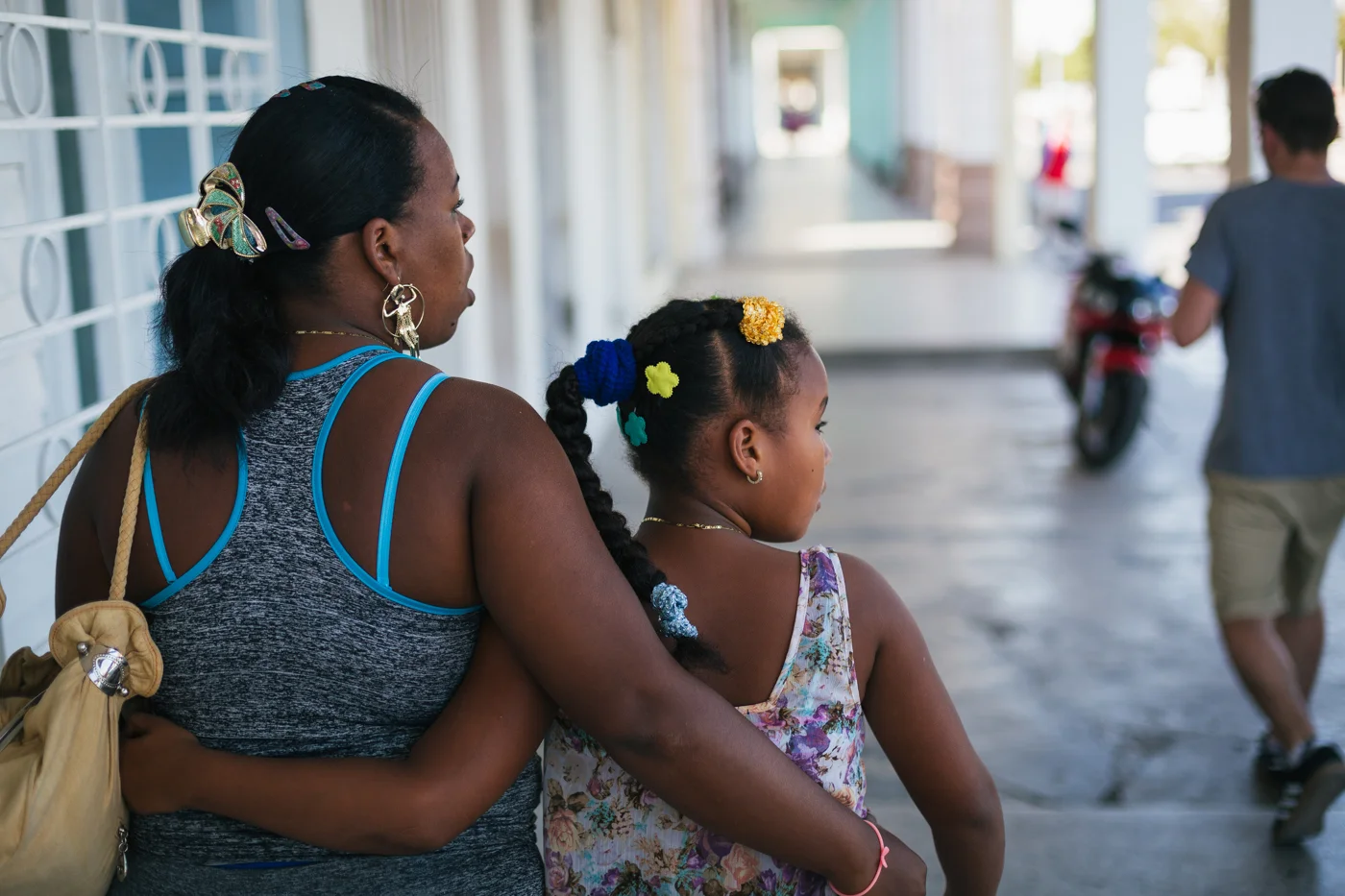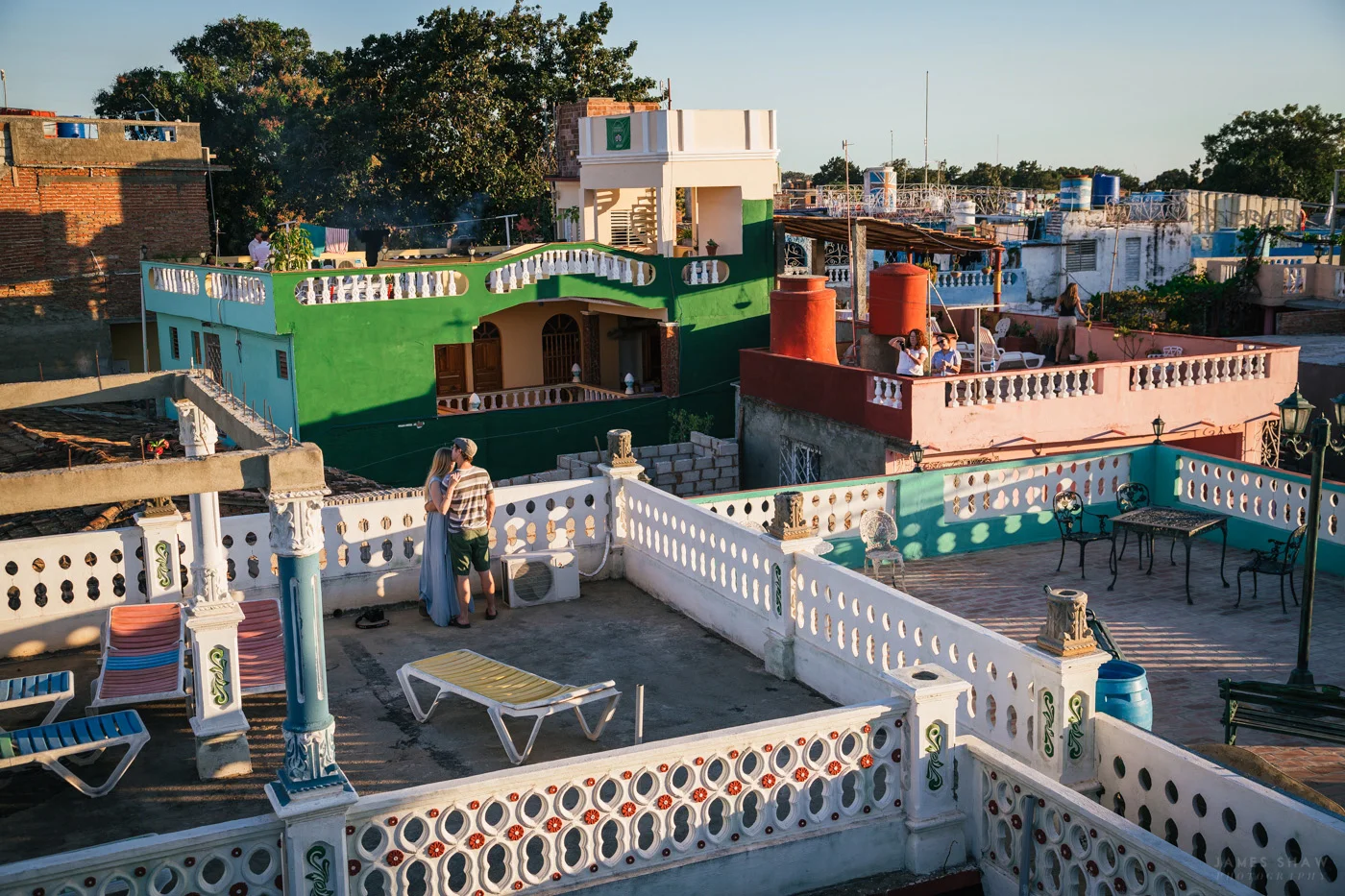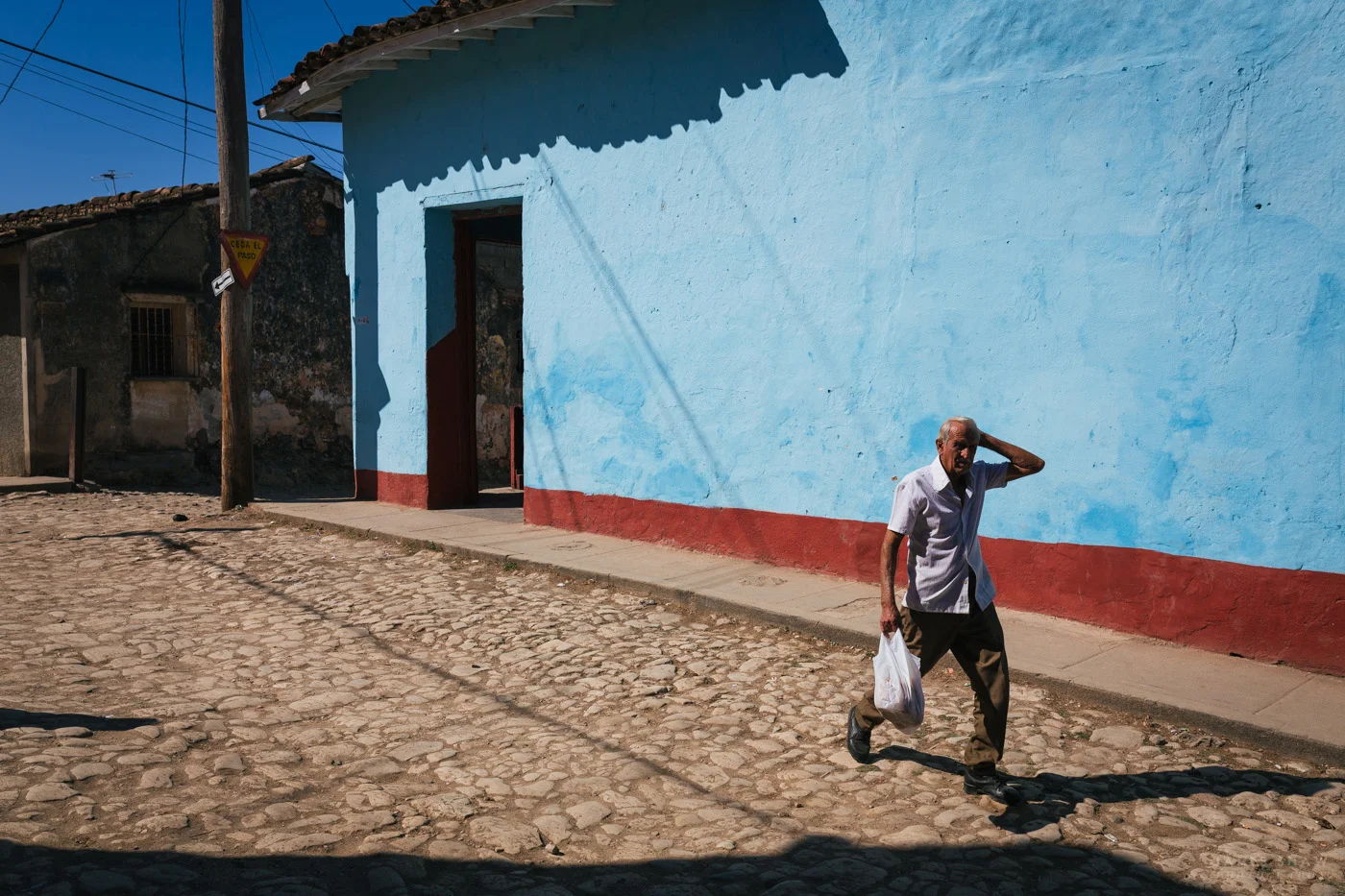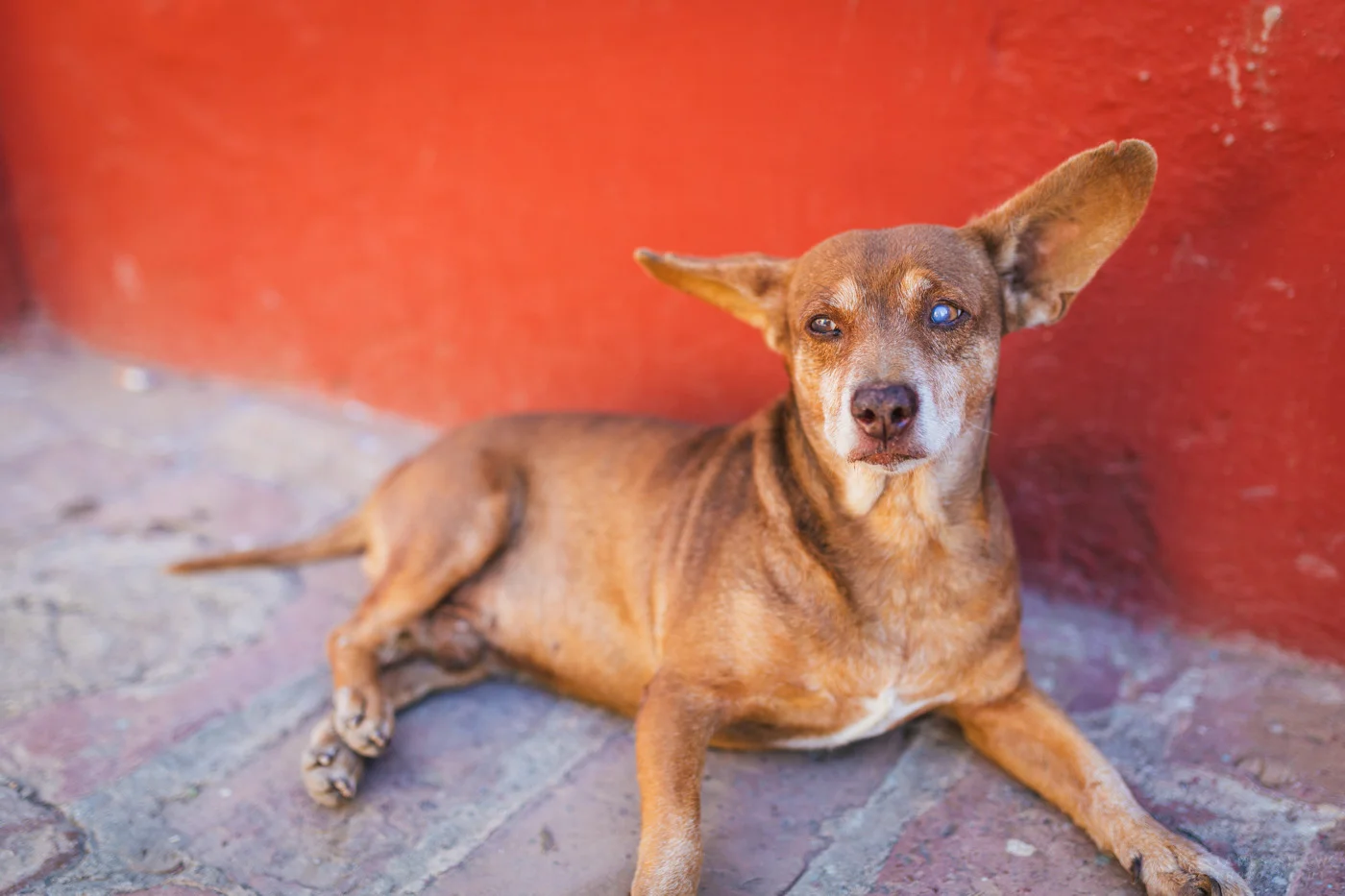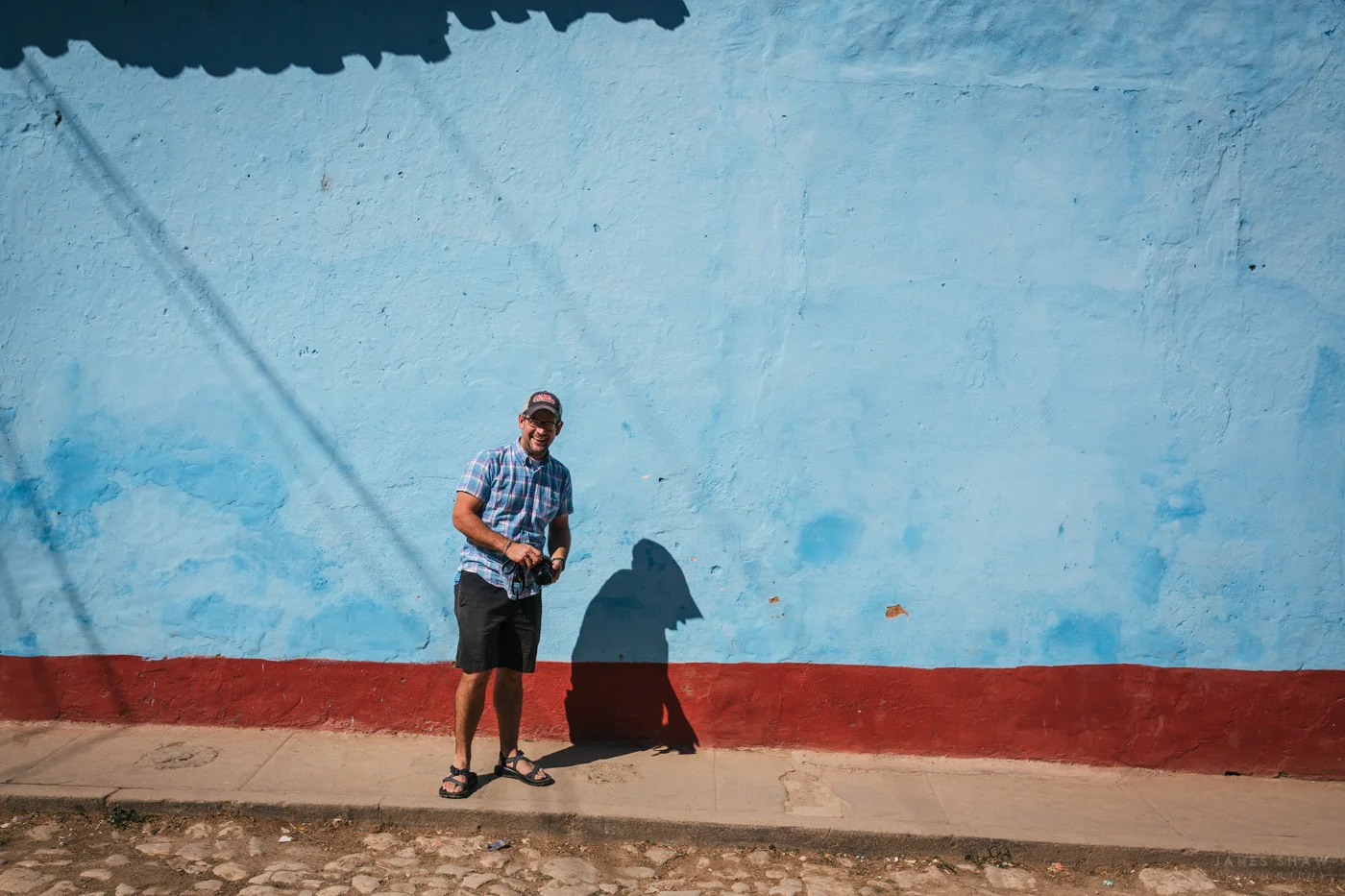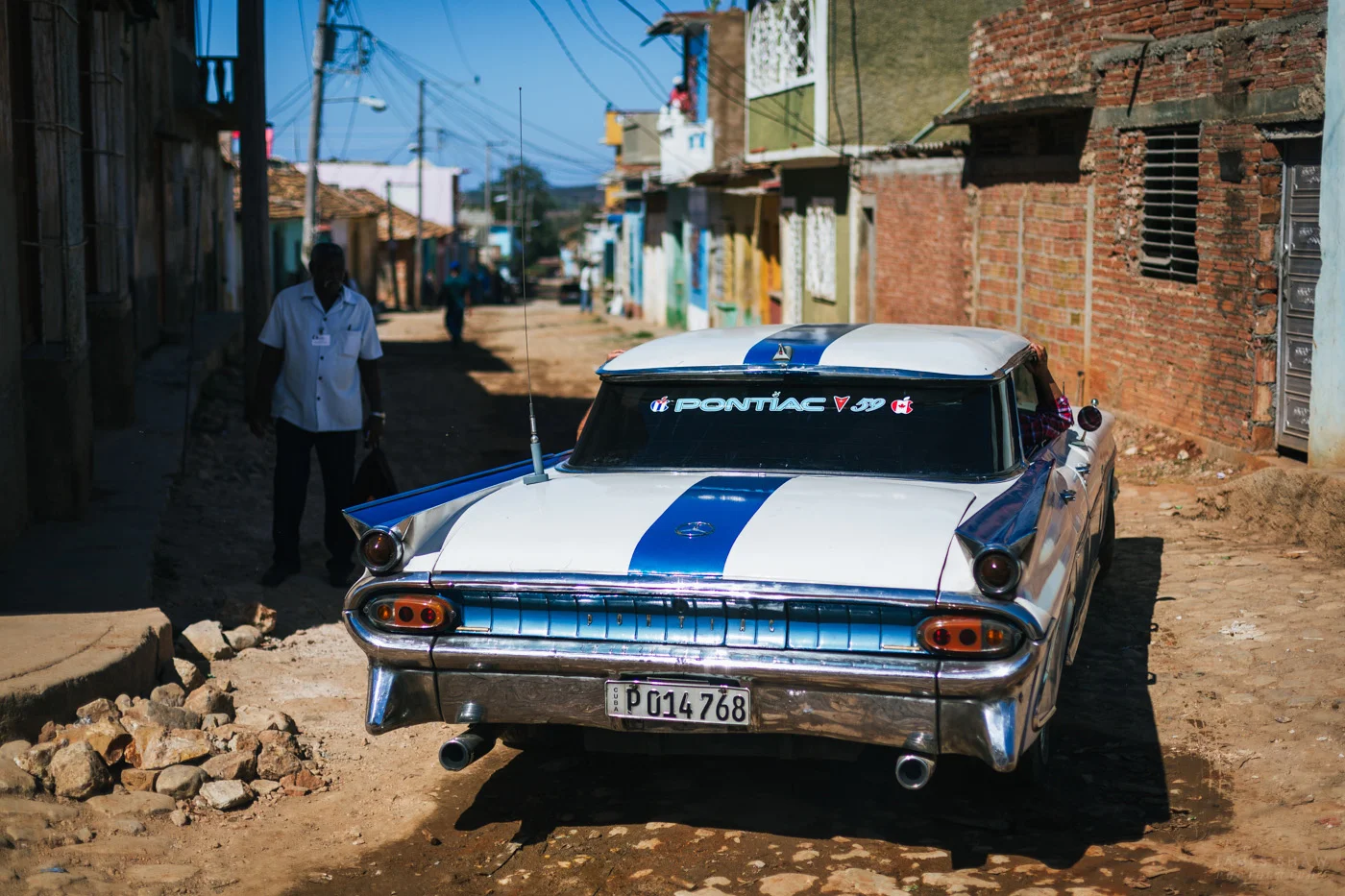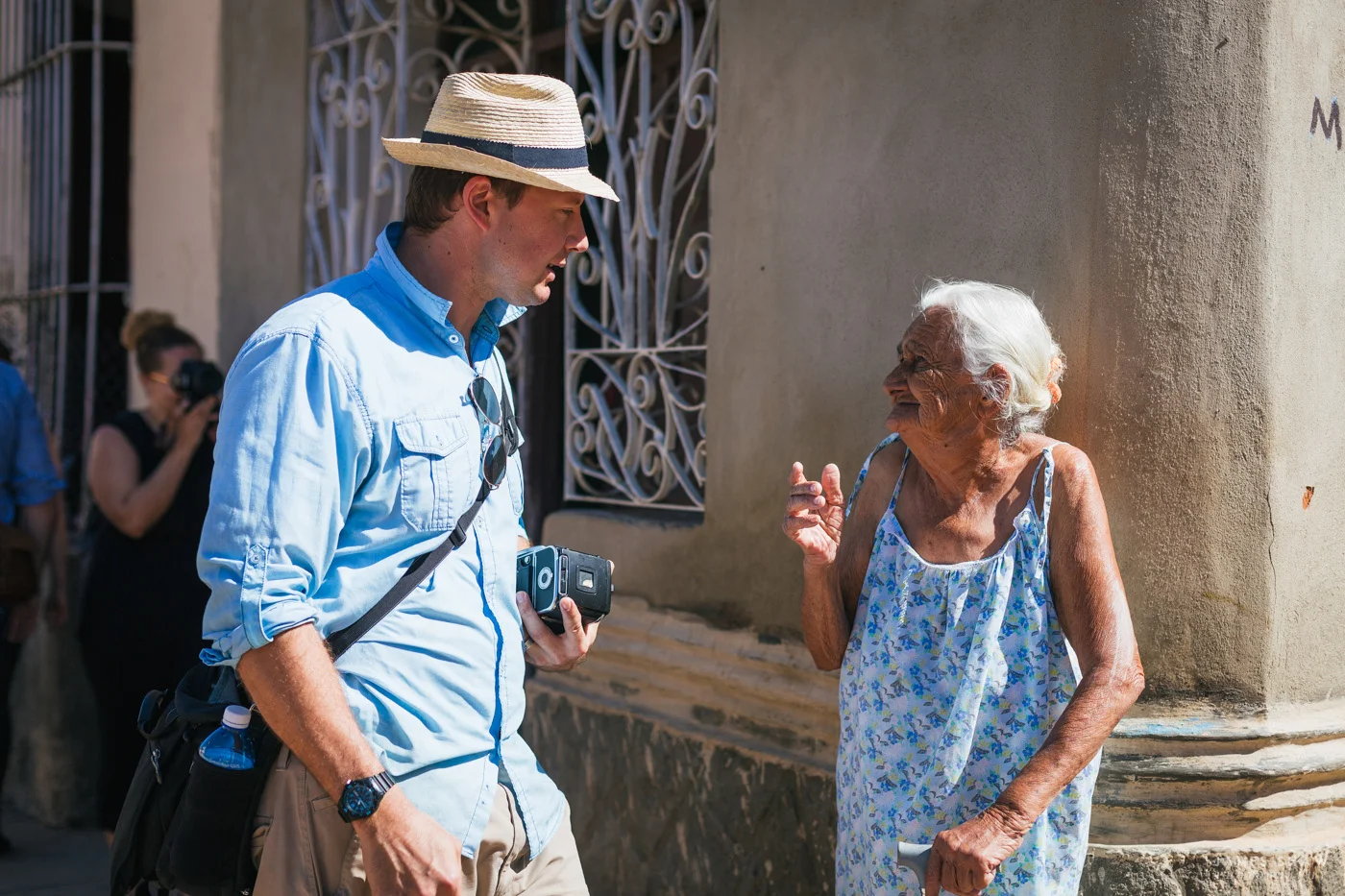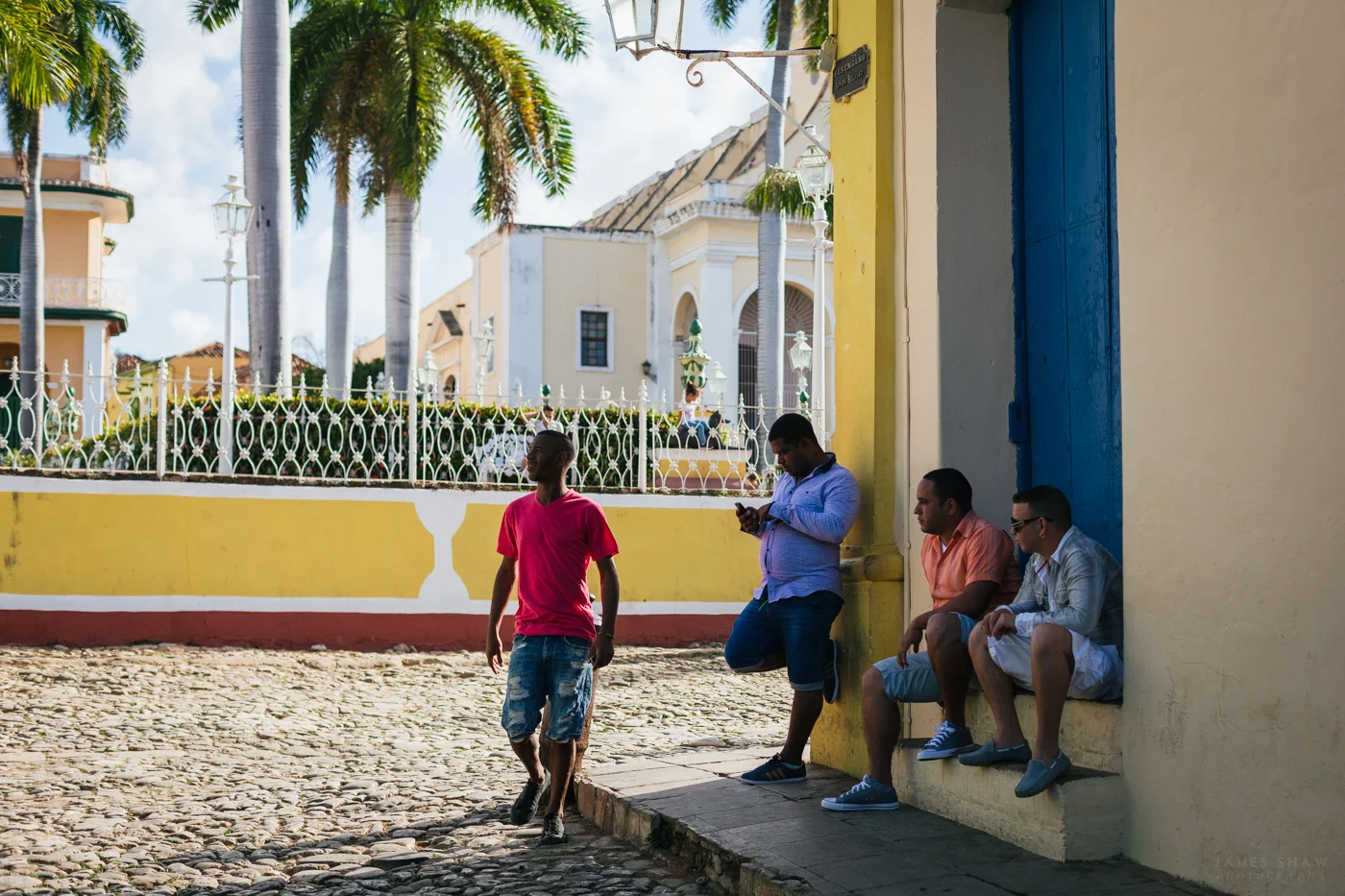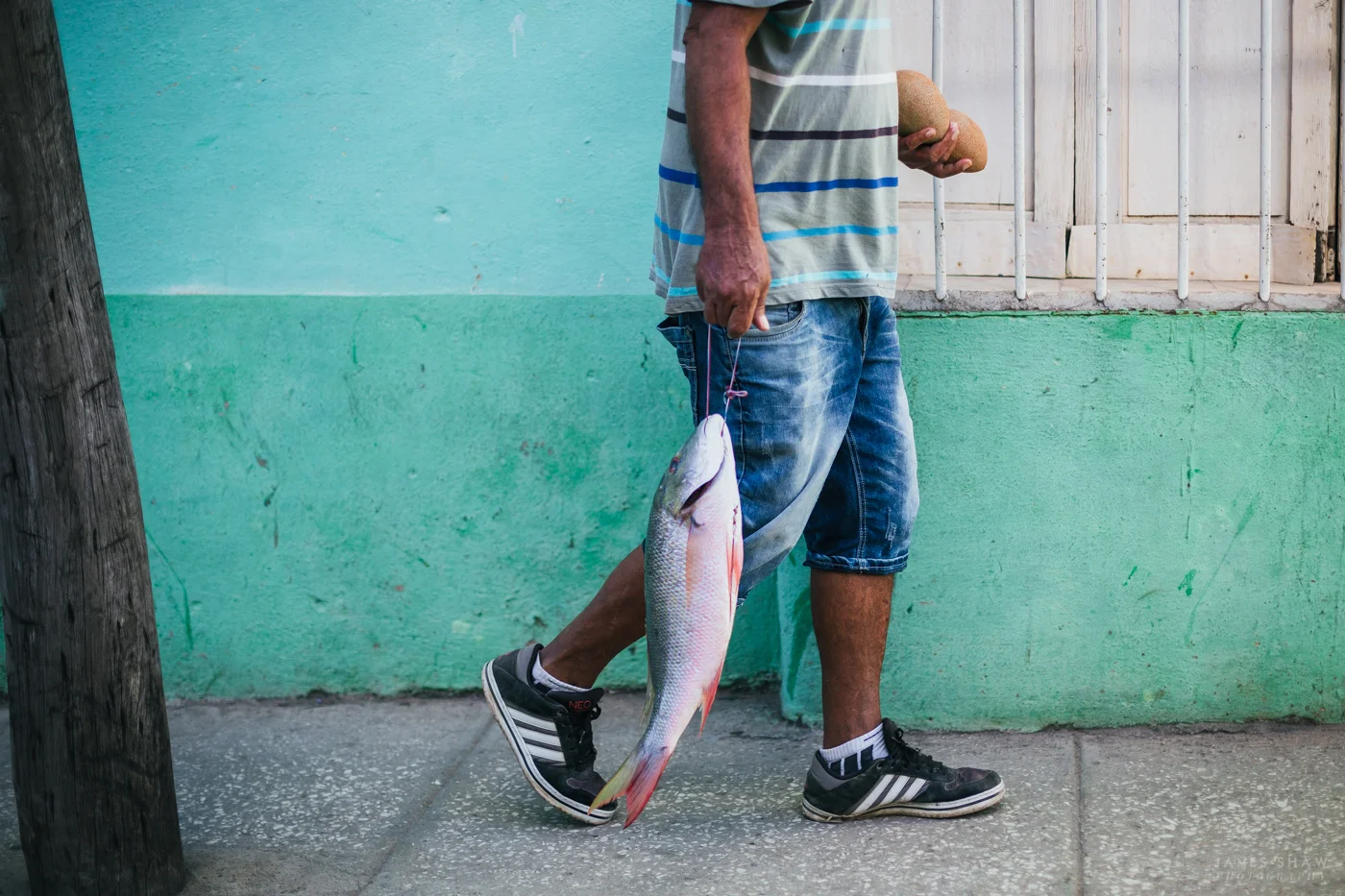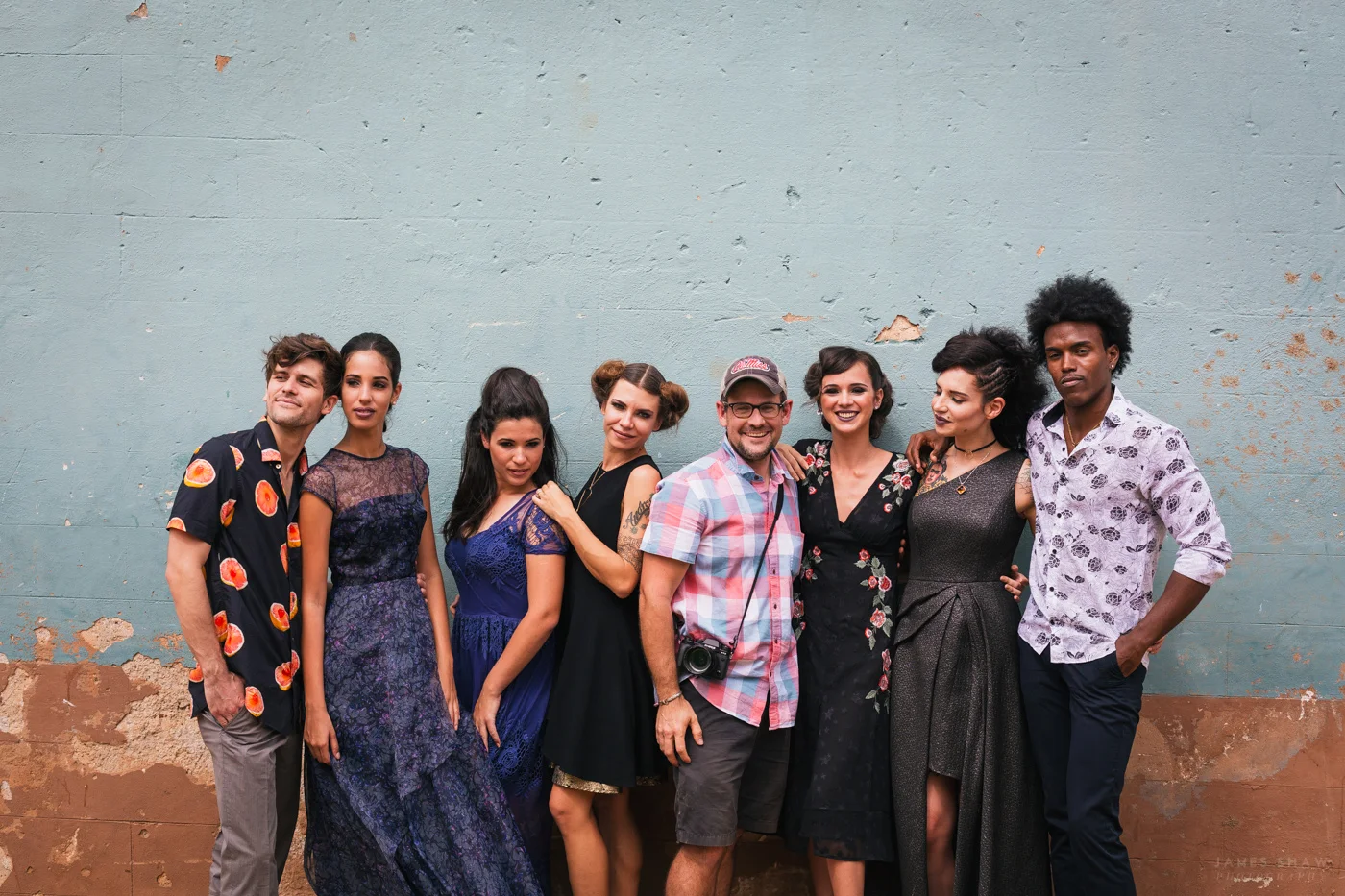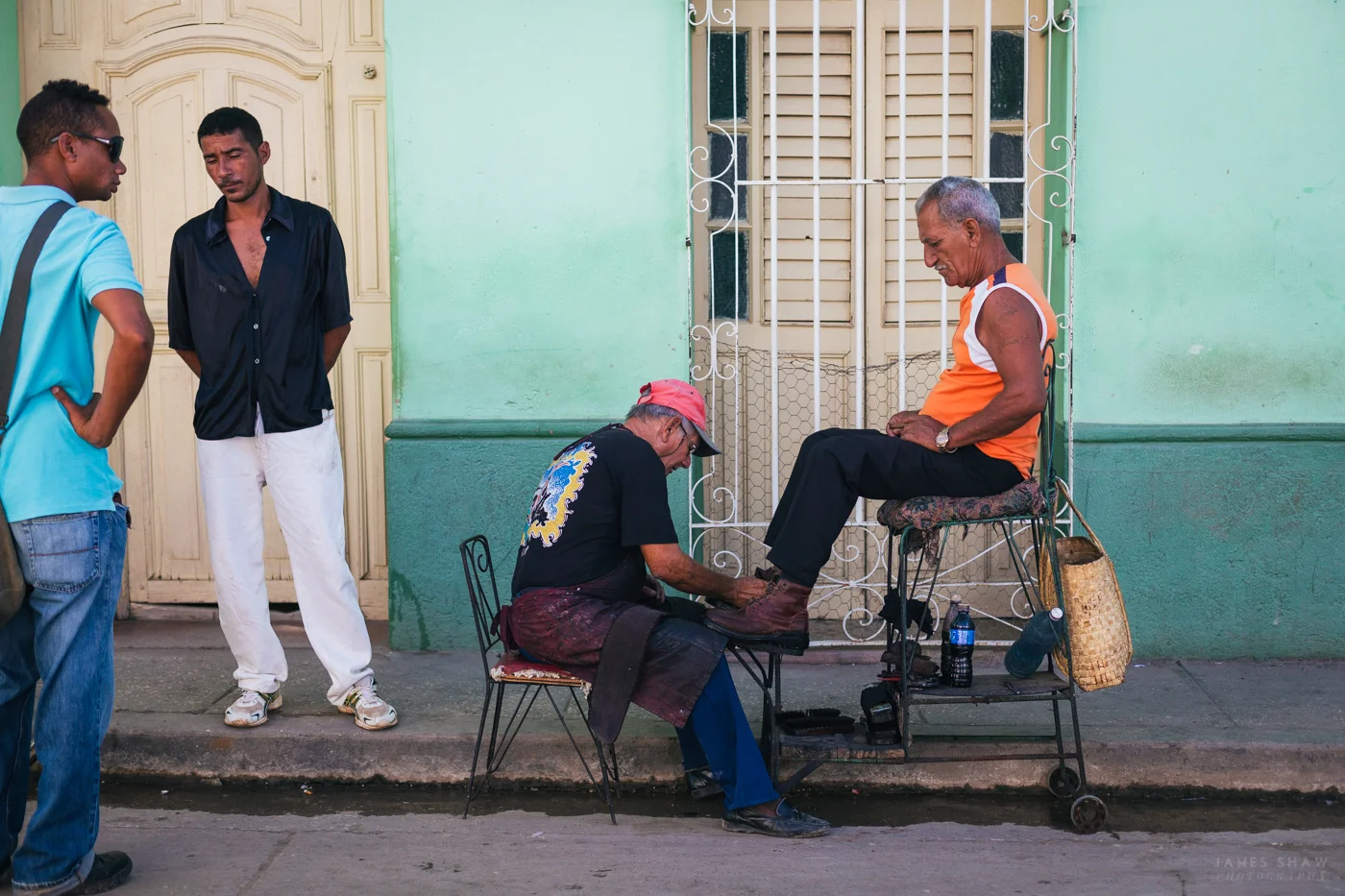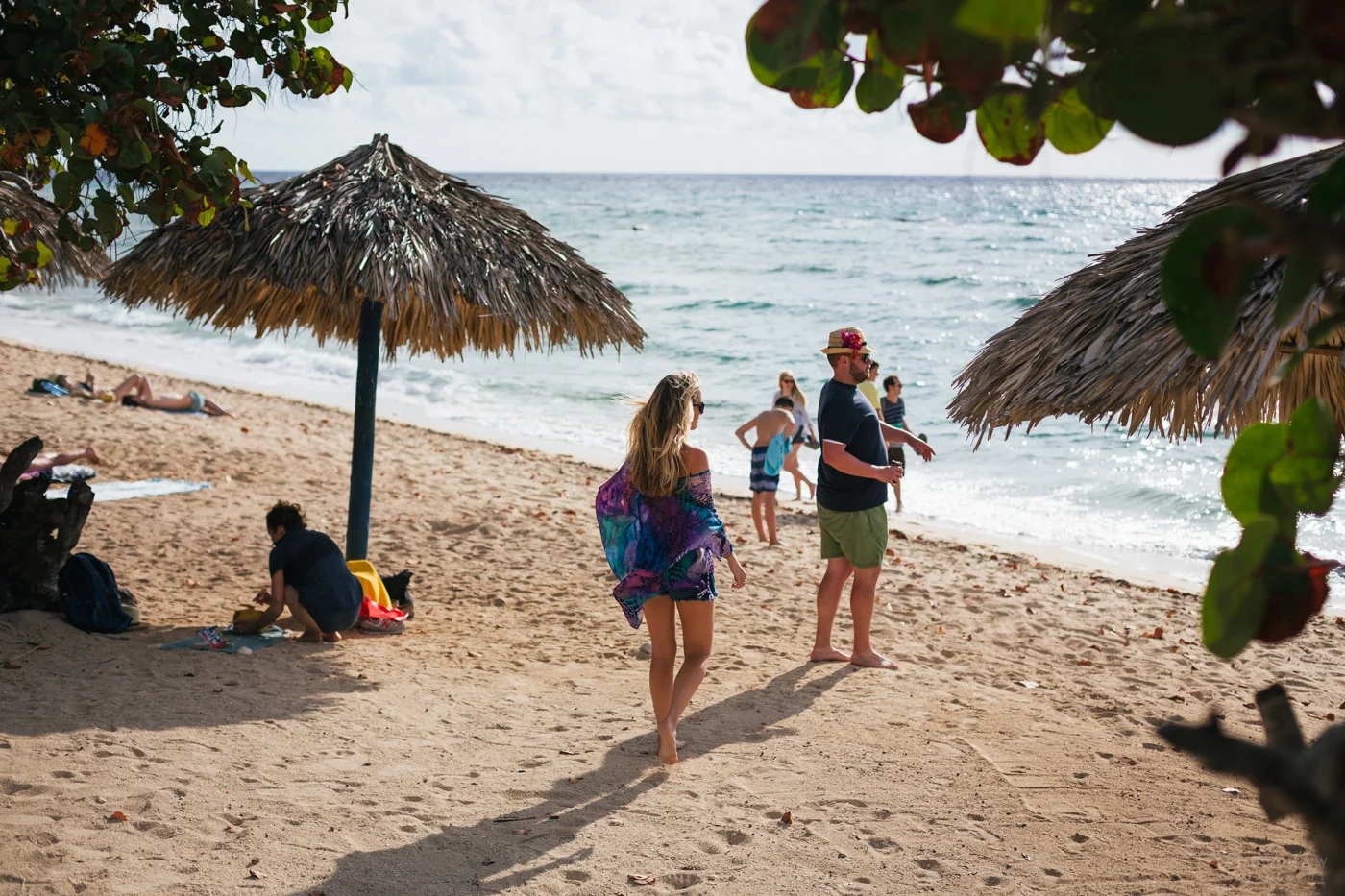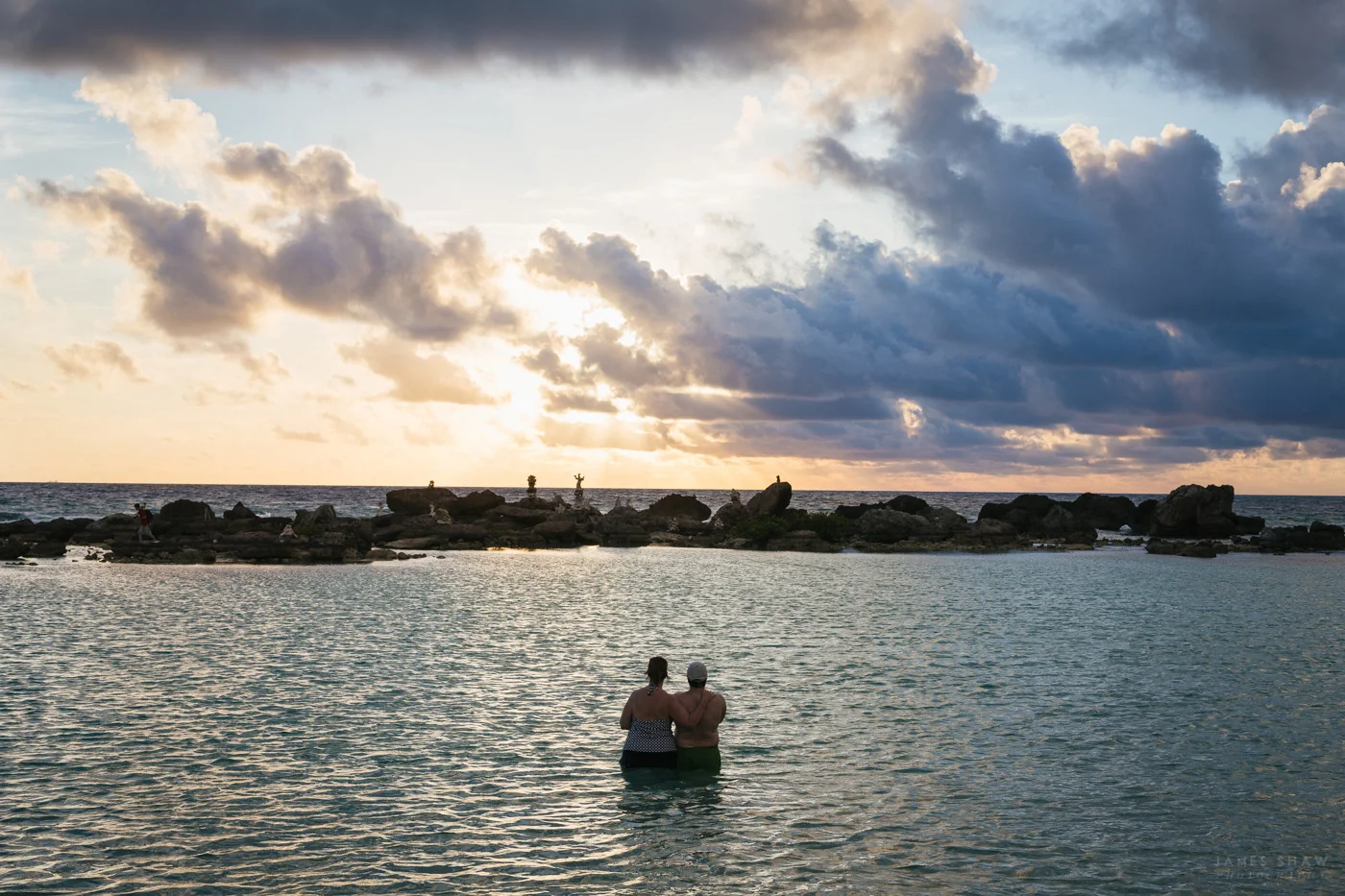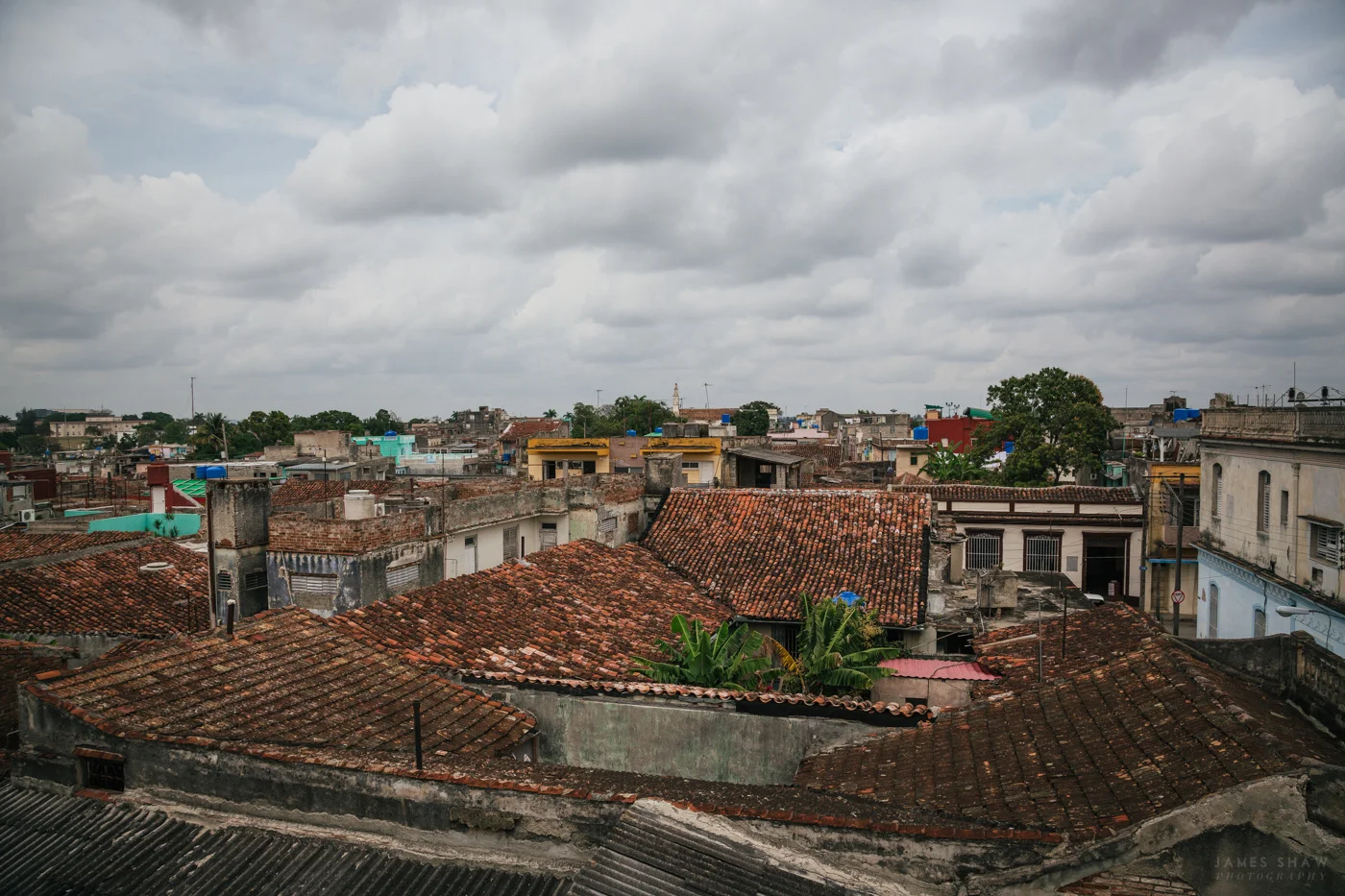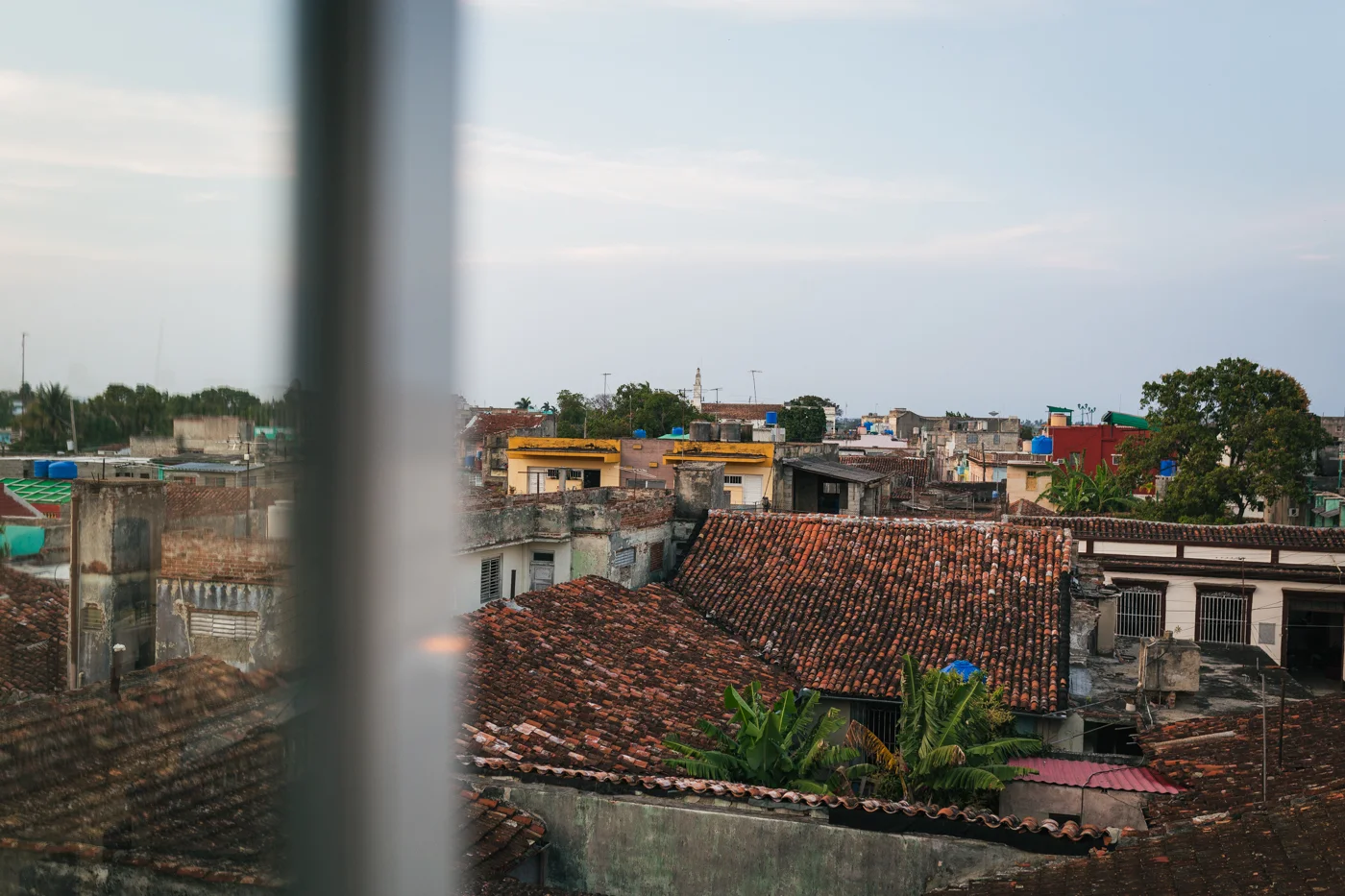Well, the floodgates have been opened...sort of.
It's easier now than it ever has been to experience Cuba, for an American at least. Besides from my Paypal account being frozen for the better part of a month because I used the word "Cuba" in a memo, getting to and from Cuba was easier than a lot of places I've been. Customs didn't blink an eye. I had a harder time getting in and out of France.
Riki and I were there on official business...sort of. I was attending a photography workshop, my first ever. You still need an "official" reason to go there, and this was ours. Led by the great Danny K., it promised to be a good time. Honestly, I was just so happy that I didn't have to plan a single thing.
WARNING: I tried to keep this post short, I really did.
Cuba is a place stuck in time. A place of stunning natural beauty and warm and happy people. I'm still trying to wrap my head around it all.
Let's talk about the good. The people of Cuba are wonderful. They were friendly, smart, warm, and most spoke at least a little broken English. Whenever I travel to these so called "third world" countries, I am always astonished (and relieved) at just how happy the people are. Like my own beloved Louisiana (dead last in every measurable category, yet #1 in "happiness"), economics don't matter much when it comes to culture and a good time.
If there's one universal truth that I've learned from all my travels, it's this: money has nothing to do with happiness. And in fact, the richest people I know are the most miserable. We have everything in America, and we're all so damn miserable.
This, for no other reason, is why travel is so important.
Don't get me wrong, I love hot water and the luxury of flushing my toilet paper just like the next guy, but our obsession with material things and their promised happiness is very, very misguided. Family, friends, culture, music, food, life...these are important, and perhaps why I love New Orleans so much.
The Cuban health care system is one of the best in the world. Yes, you read that correctly. Universal health care was a priority for the communist government, and it shows. Cuba has more doctors per capita than any other country on earth, and their doctors are world class. In 2015, Cuba was the first country to eradicate the transmission of HIV from mother to fetus. The World Health Organization said "it was one of the greatest public health achievements possible." Just goes to show what can happen when you make something a priority.
Cuban doctors travel all over the world in times of crisis, and recently played a huge part in getting the Ebola epidemic in West Africa under control. In fact, after Hurricane Katrina, Cuba offered to send 1,600 medics and 83 tons of medical supplies to New Orleans. The U.S. said "no thanks" and turned them away. Politics over people. You can read about that here.
Obviously, access to medicine and medical supplies are hard to come by, yet the life expectancy for the average Cuban is longer than ours in the good ole USA. McDonald's hasn't found it way into the arteries of the Cuban people just yet. Really, think about that.
The natural beauty of Cuba is stunning. Sure, it's communist. But it ain't North Korea. It's not the Soviet Union or East Germany. It doesn't get 60 below in winter. It may be hot, but it's a paradise...like no other island I've been to. Its beaches were pristine. Its lands were lush, complete with untouched mountains. Developers are no doubt eyeing the situation with a keen interest.
Let's talk about more of the good. Crime is virtually non existent. Drugs don't seem to exist. Sure, Cuba has both of these things, but you're not very likely to find them. After talking to many lifelong Cubans, the biggest thing you'd have to worry about is getting short changed, presumably on purpose. I didn't worry once about my passport and camera gear left in my room. I can't say that about any other place I've ever traveled.
The great concern about introducing western capitalism with reckless abandon is the loss of everything that's wonderful here.
It's easy to romanticize a place like Cuba. But let's be real, it's still communism, and opportunity here is non-existent. Once you leave the beautiful decaying center squares of the old cities, the more soviet-style concrete block architecture reminds you that you are still indeed in a very oppressed place.
Everyone gets paid the same...sort of. Doctors make a little more. Certain jobs make a little more. Taxi cab drivers seem to make out the best. Still, the average "redistribution" in Cuba is about $28 a month/per person. As you can imagine, even in Cuba that is an impossibly low sum to live on. It forces everyone, and I mean everyone, to have a side gig, a hustle. Some people sell food out of their window. Some people rent out rooms in their homes, like Airbnb. Some people had cameras and printers and Photoshop. Some people had the latest gaming computers in homes - homes that may or may not have had running water. How anyone acquires these things is beyond me. You just find a way.
We talked to a lot of smart people in Cuba, and it gave me genuine hope for the place. We spoke to people that spoke English and had degrees, people who have traveled around the world and keep coming back to Cuba. They come back because of family and friends, because Cuba is their home, and because they want to change it from within. They are not running away.
But there are others, like Dinner here, who have family in America and desperately want to leave. He had applied for a visa and been denied. We spoke to those who dreamed of nothing more than coming to America.
We did not get to Havana. We flew into Santa Clara (highly recommended after hearing horror stories about the Havana airport), and from there traveled south to Cienfuegos, Trinidad, and back to Santa Clara.
This trip taught me so much. It is my greatest wish that everyone could experience Cuba. From every alt-right Trump supporter to every PC-freak liberal and everyone in between. Everyone would be greatly changed, in my opinion. I tried my best to figure this place out. I couldn't. But to my relief, I don't even think the lifelong Cubans know exactly how their government works. It's Communism, sure, but only one thing is certain -- no one is equal.
Life is what we make it. That's the beauty and the unfairness of it all.
"Travel is fatal to prejudice, bigotry, and narrow-mindedness, and many of our people need it sorely on these accounts. Broad, wholesome, charitable views of men and things cannot be acquired by vegetating in one little corner of the earth all one's lifetime." - Mark Twain, 1869
CIENFUEGOS
We explored the city for much of the day without any agenda. We toured an art studio run out of someone's home. We ran across a former Casino that has been transformed into a gorgeous restaurant with fantastic views of the ocean. We eventually stumbled onto a sunset cruise around the peninsula, one of my favorite memories of the trip.
If you walk around Cuba at night, you'll notice the glow of devices off the faces of the natives. They do have wifi, but only in certain hot spots. They're not supposed to have Facebook, but of course they have Facebook. There's an app to get around anything. My new friend Pedro described it to me as follows: "We now have the internet at our hands, but people only use it for facebook and social media, nothing else." I assured him we have the same dilemma in America, and probably everywhere else too, for that matter. We're all the same.
TRINIDAD
"TRINIDAD IS NOT CUBA," Isreal, one of our hired models, told me. I knew exactly what he meant- New Orleans is not America. Trinidad is an old Spanish colony on the southern coast of Cuba with a population of just over 73,000. It just celebrated its 500th birthday in 2014. That's right, it was founded by the Spanish in 1514. It was a town built on sugar cane, and not much has changed. It's (previous) wealth is still on display, even if it's a little worse for the wear. Its main industry now is tobacco, and of course, tourism. To put the last 5 years of Cuba into perspective, get this: in 2011 Trinidad had 3 private restaurants. Three. It now has more than 100. Still, it never felt crowded.
We arrived in Trinidad just as the sun was setting, a magical time known to photographers as the golden hour. It's not hard to see why. We dropped our bags and scurried to the rooftops, giddy with excitement.
"Sometimes standing in line at the club is better than getting in the club." We had waited nearly 2 hours in line at the hottest club in Trinidad- a club that's deep in the cave of a mountain. We meet some really cool Sweeds and a crazy dude from Norway, a complete alcoholic who had been in Cuba for 5 weeks. We had the best conversations about Trump and the state of politics. Their awareness of our entire political system and world economics left me a bit stunned. We in America are so ignorant and arrogant...a dangerous combination. We simply don't bother to learn any other system in the world because we don't need to.
"The government does not give us paint," our fixer Julio told us. The residents of Trinidad are a proud bunch, and the pop of colors on their homes prove it. There were no paved streets in sight, yet the cobblestone roads were in surprisingly good shape...no telling how old they are. Once we left the hustle of the main square, the "real" Trinidad quickly reveled itself. Dirt roads, cowboys, song birds and prized cocks were all on display. It legitimately felt like stepping back in time.
We ended the day with a pig roast in the dusty countryside and a fresh dip in the ocean. Not a bad day.
HOMELAND OR DEATH
THE BEACHES OF TRINIDAD are world class. Pristine waters, mountain views, $3 mojitos, and about six other people in sight. It was a paradise. Seriously, if you are looking to get away from it all, Trinidad is your spot.
Sadly, we would leave Trinidad the next day. Like I mentioned above, if you want to get away from it all, as in a world class beach practically all to yourself, get to Trinidad. Just don't expect 5-star accommodations. I will be back.
We took a bus to our final stop and departure city, Santa Clara. But first, we drove through the mountains, catching a glimpse at rural Cuba, and how life was 100 years ago. There were so many picturesque moments that we just didn't have the time to capture, but we were lucky enough to convince the bus driver to make a couple of stops for us.
SANTA CLARA
We arrived in Santa Clara mid afternoon. Everyone was tired. Everyone was hungry. We dropped our bags and attempted to go on a tour, but it didn't go well. We tried to explain to our gracious tour guide the concept of hangry. He understood.
One of the absolute highlights of the trip and overall profound moment of my life happened in Santa Clara. It was one of those moments that makes life special, and reaffirms why travel and sponteniety are so important. In short, we met a long lost family member of someone in our group who turned out to be one of the world's most amazing artists. I'm quite certain you'll known her name one day- Aida Ida.
I've decided that this entire interaction is worthy of it's own blog post, though. Let's just say that if I happened to be a writer for the New York Times, this story would have been on the front page of the Arts section. It was that good, that moving. We bought some art, which I cannot wait to get properly framed.
So there you have it. Our time in Cuba was special, and I have a feeling that I'll be back many, many times. We had such a great group of people, and I can't wait for our next adventure together. We are already talking about Iceland and the northern lights next year. Count us in!
And if you want to see our tripped summed up in a fantastic 2 minute video, see above. Thanks Lisa Hibbert!












